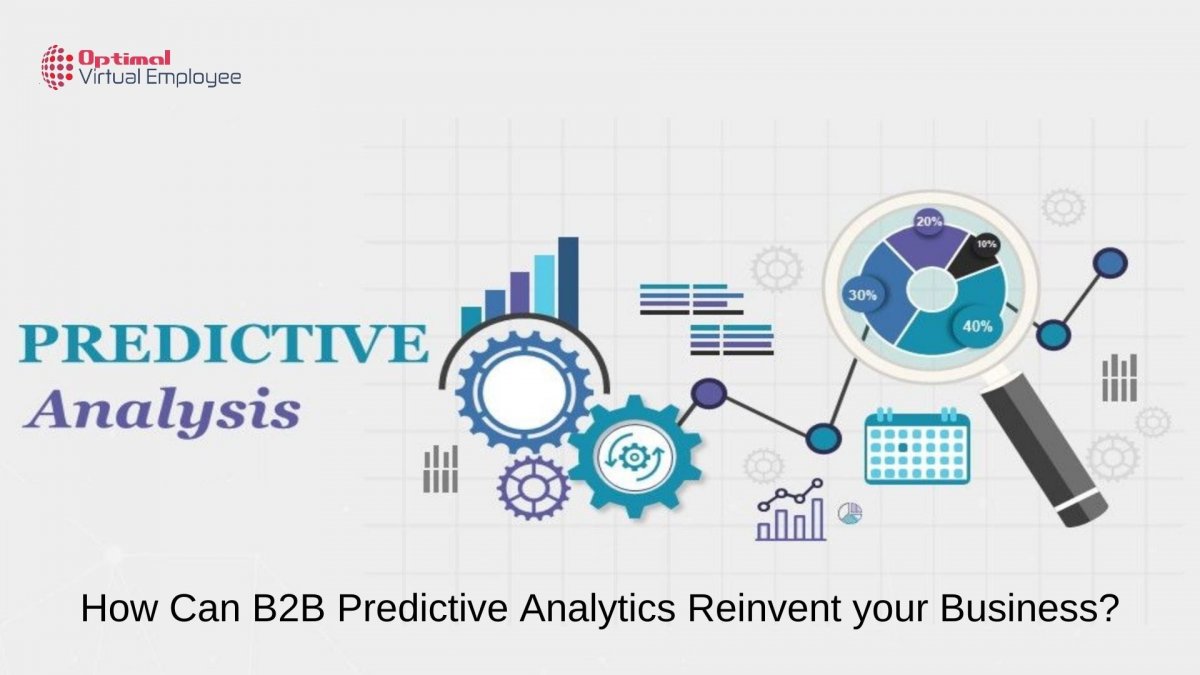If qualified leads are what get a B2B business going, meaningful insights from marketing data can make or break their sales processes. Enter Artificial Intelligence and Machine Learning, two technologies that are revolutionizing the outcomes from data mining. A MarketsandMarkets survey claims that the predictive analytics market size is expected to grow up to USD 12.41 Billion by 2022.
SaaS-backed predictive analysis helps B2B marketing experts revise the way they approach their core functions. Not only does it take the burden away from marketing strategies, but processes like predictive modeling, machine learning, and data mining allow a thorough analysis of current and historical data to come up with useful insights and prediction of future business outcomes. This leaves B2B marketers free to create search intent relevant content and devise campaigns that cater to the specific needs of their target audience. The result is focused on creating high-value content for big-ticket clients. Businesses that hire software developers successfully leverage the potential of predictive analysis for their business processes.
How Can B2B Predictive Analysis Reinvent your Business?
Predictive analysis can help marketing and sales teams leverage available data optimally and focus on driving better ROIs. We tell you how:
-
Acquiring Prospects
B2B businesses backed by predictive analysis can easily spot prospects and leads due to their ability to identify and pinpoint profiles with similar behavior patterns on the basis of their actions. Even simple actions like a buyer’s purchase intent, content downloading, or contract renewal add to the data repository and help predictive models identify similar prospects early on in the sales cycle by prioritizing them, reaching out to them, and leveraging advanced opportunities to market what they have got.
-
Prioritizing Prospects and Leads
The predictive analysis aids predictive scoring to aid businesses. While traditional lead scoring is based solely on experimentation-based hit and trial and speculation, predictive analysis-based lead scoring is a systematic way to assign weightage and score to the prospective leads. Strategic scoring on the leads is useful for marketing and sales teams when identifying accounts and clients who are more likely to buy. Predictive analysis can help prospects optimally redirect their efforts to bring home better returns.
-
Automatic Lead Segregation
In legacy arrangements, B2B marketers need to categorize their prospective clients and leads on the basis of factors like industries and job roles. However, this segregation remained a laborious effort often initiated by manual intervention. Predictive algorithms help with analysis and automate the categorization process by identifying and creating relevant segments. Thanks to predictive analysis, B2B marketing professionals can execute campaigns that provide adequate assistance to leads.
-
Data Management
As Moore’s law states, the capacity of storage devices is on the rise at better costs year after year. While accumulating data is becoming simpler with time, the way of deriving actionable insights from this data is often unclear. Data insights need to be used to understand the precise needs of a B2B buyer. Predictive analysis helps marketers understand their B2B customers’ unique demands and successfully predict the near-future trends.
-
Better Offer Matching for the Client’s Benefit
B2B salespeople used to embrace account segmentation, but due to the amount of knowledge updating it requires, that sales model has become ineffective due to its inconsistent results. It is often the culprit behind poor resource allocation and the use of different sales strategies without any common point. The use of predictive analytics in sales planning lets resources is effectively allocated to the right projects. The technology can revamp the way businesses look at sales talent and field expertise.
B2B businesses want to hoard high-performing salespeople; they use a combination of customer, sales, and HR data to hire and retain salespeople and let them handle accounts for which they hold the expertise. Predictive analytics brings the hidden traits of the high-performers to the limelight. Consequently, HR hires people with better skills relevant to what the company needs. It is predictive pipeline management that reduces cost and promises better returns.
In the End
While the use cases of predictive analysis in B2B business setup can well be numerous, decision-makers must keep their problem statements insight to figure out the exact goals they seek to achieve using the tech.
It’s time businesses embrace a customized approach to various core processes and make the most predictive analysis. Bring cost-efficiency, enhanced capacity, and coverage to your business’s sales and marketing initiatives with predictive analysis.
Using predictive analytics in combination with AI can summarize KPIs for sales control and accelerate the often slow-moving side of the sales management process. Not only does it add immense value, but it also saves time. B2B businesses must choose predictive analytics software that is easy and quick to implement in the sales process. This way, the outcomes, and insights can be implemented with a short-term horizon, and the returns can be huge.









